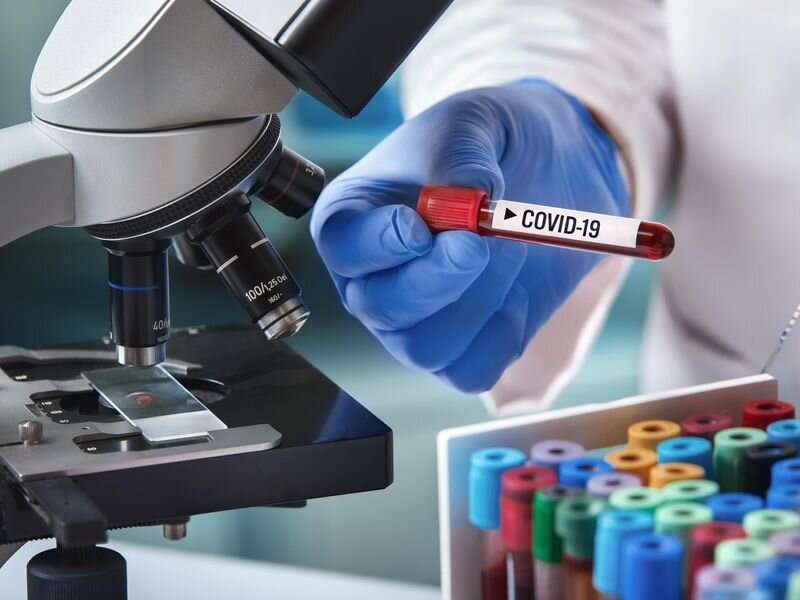U.S. SARS-CoV-2 seroprevalence high based on blood donations


The combined severe acute respiratory syndrome coronavirus 2 seroprevalence from infection or vaccination reached an estimated 94.7 percent in December 2021, according to a research letter published online June 13 in the Journal of the American Medical Association.
Jefferson M. Jones, M.D., M.P.H., from the U.S. Centers for Disease Control and Prevention in Atlanta, and colleagues conducted a cross-sectional study incorporating monthly blood donations from individuals aged 16 years and older from 66 study regions, including all 50 states, Washington, D.C., and Puerto Rico. Specimens were tested for spike and nucleocapsid antibodies. Seroprevalence was estimated in December 2021, and the changes between May and December 2021 were examined.
Between July 2020 and December 2021, there were 2,408,093 included specimens. The researchers found that the infection-induced seroprevalence increased from 20.2 to 28.8 percent from May through December 2021; combined seroprevalence (from infection or vaccination) increased from 83.3 to 94.7 percent. In December 2021, infection-induced seroprevalence was highest among those aged 16 to 29 years (40.0 percent), in non-Hispanic Black and Hispanic populations (32.5 and 40.2 percent, respectively), and in those living in the South and Midwest (33.5 and 31.7 percent, respectively). Combined seroprevalence was 92.9 percent or more in all subgroups. A smaller increase in infection-induced seroprevalence was seen in association with higher vaccination rates.
“The combined seroprevalence from infection or vaccination reached 94.7 percent by December 2021,” the authors write. “Despite this, record levels of infection and reinfections were reported as the omicron variant became predominant in early 2022.”
Source: Read Full Article